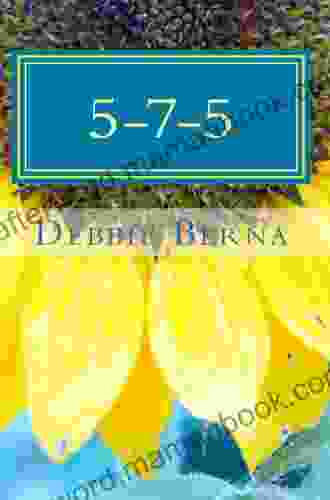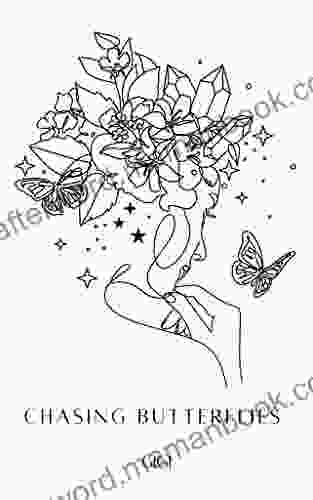The Enchanting World of Haiku: A Guide to the Japanese Art of Poetry

Haiku, a form of Japanese poetry, has captivated readers with its brevity and evocative imagery for centuries. Originating in the 17th century, haiku has emerged as a celebrated and revered art form, lauded for its ability to capture fleeting moments and elicit profound emotions. This comprehensive guide delves into the captivating world of haiku, exploring its history, structure, and the techniques employed to create these exquisite literary gems.
Delving into the Roots of Haiku: The Historical Landscape
The genesis of haiku can be traced back to the ancient Japanese tradition of "renga," a collaborative form of poetry where multiple poets contributed alternating lines. These linked verses evolved into the distinct form of haiku in the 17th century, with the renowned poet Matsuo Bashō credited with refining and popularizing this genre. Bashō, along with his disciples, established the fundamental principles and techniques that would shape the future of haiku.
5 out of 5
| Language | : | English |
| File size | : | 298 KB |
| Text-to-Speech | : | Enabled |
| Screen Reader | : | Supported |
| Enhanced typesetting | : | Enabled |
| Print length | : | 36 pages |
| Lending | : | Enabled |
| Paperback | : | 354 pages |
| Item Weight | : | 1.04 pounds |
| Dimensions | : | 6 x 0.8 x 9 inches |
Initially, haiku encompassed a broader range of themes, including satire and humor. However, over time, it evolved into a form primarily concerned with capturing the essence of nature and the changing seasons. Haiku poets sought to distill the vast beauty and complexity of the natural world into a few carefully chosen words, painting vivid mental images with remarkable economy.
Unveiling the Structure of Haiku: A Symphony of Syllables
Haiku is defined by its unique structure, which consists of three unrhymed lines composed of five, seven, and five syllables, respectively. This seemingly simple structure demands precision and careful word choice, as each syllable contributes to the overall impact and meaning of the poem.
The five-seven-five syllable pattern provides a natural rhythm and flow to haiku, creating a sense of balance and cohesion. The first line typically sets the scene or introduces a subject, while the second line elaborates on the initial image or introduces a contrasting element. The final line often offers a subtle twist or insight, providing a moment of contemplation and reflection.
Exploring the Techniques of Haiku: Crafting Poetic Masterpieces
Haiku poets employ a range of techniques to create evocative and profound works of art. These techniques include:
- Kireji (cutting word): A word or phrase that creates a pause or break within the haiku, often highlighting a juxtaposition or shift in perspective.
- Kigo (seasonal reference): A word or phrase that indicates the season in which the haiku is set, connecting the poem to the natural world.
- Juxtaposition: The placement of contrasting images or ideas side by side, creating tension and depth within the haiku.
- Implication: Suggesting deeper meanings or emotions without explicitly stating them, encouraging the reader to engage with the haiku on a more personal level.
Masters of Haiku: Trailblazers of the Poetic Landscape
Throughout history, numerous poets have left an indelible mark on the world of haiku. Here are a few notable masters:
- Matsuo Bashō (1644-1694): Regarded as the father of haiku, Bashō's works exemplified the essence of the genre, capturing the beauty of nature and the human experience with unrivaled simplicity and elegance.
- Yosa Buson (1716-1783): Known for his vivid descriptions of nature and his innovative use of poetic techniques, Buson expanded the scope of haiku, introducing new themes and perspectives.
- Kobayashi Issa (1763-1827): Issa's haiku often explored themes of compassion, empathy, and the interconnectedness of all beings, infusing his works with a profound sense of humanity and warmth.
Haiku in Contemporary Times: Evolution and Adaptation
In the contemporary era, haiku continues to evolve and resonate with poets and readers alike. While traditional forms remain highly valued, modern haiku often break away from the strict five-seven-five syllable structure, embracing greater experimentation and diversity. Contemporary haiku poets explore a wider range of themes, including urban landscapes, social issues, and personal experiences.
Haiku has also gained global recognition, with poets from around the world embracing the genre and infusing it with their own cultural and linguistic nuances. This cross-cultural exchange has enriched haiku, fostering a vibrant and dynamic international community of poets.
: Haiku - A Window to the World
Haiku, with its enchanting brevity and profound imagery, offers a unique window into the world, inviting us to appreciate the beauty of nature, the complexities of human emotion, and the interconnectedness of all things. Whether encountered in its traditional form or embraced in its contemporary manifestations, haiku continues to captivate and inspire readers, reminding us of the power of words to capture the essence of life's fleeting moments.
5 out of 5
| Language | : | English |
| File size | : | 298 KB |
| Text-to-Speech | : | Enabled |
| Screen Reader | : | Supported |
| Enhanced typesetting | : | Enabled |
| Print length | : | 36 pages |
| Lending | : | Enabled |
| Paperback | : | 354 pages |
| Item Weight | : | 1.04 pounds |
| Dimensions | : | 6 x 0.8 x 9 inches |
Do you want to contribute by writing guest posts on this blog?
Please contact us and send us a resume of previous articles that you have written.
 Top Book
Top Book Novel
Novel Fiction
Fiction Nonfiction
Nonfiction Literature
Literature Paperback
Paperback Hardcover
Hardcover E-book
E-book Audiobook
Audiobook Bestseller
Bestseller Classic
Classic Mystery
Mystery Thriller
Thriller Romance
Romance Fantasy
Fantasy Science Fiction
Science Fiction Biography
Biography Memoir
Memoir Autobiography
Autobiography Poetry
Poetry Drama
Drama Historical Fiction
Historical Fiction Self-help
Self-help Young Adult
Young Adult Childrens Books
Childrens Books Graphic Novel
Graphic Novel Anthology
Anthology Series
Series Encyclopedia
Encyclopedia Reference
Reference Guidebook
Guidebook Textbook
Textbook Workbook
Workbook Journal
Journal Diary
Diary Manuscript
Manuscript Folio
Folio Pulp Fiction
Pulp Fiction Short Stories
Short Stories Fairy Tales
Fairy Tales Fables
Fables Mythology
Mythology Philosophy
Philosophy Religion
Religion Spirituality
Spirituality Essays
Essays Critique
Critique Commentary
Commentary Glossary
Glossary Bibliography
Bibliography Index
Index Table of Contents
Table of Contents Preface
Preface Introduction
Introduction Foreword
Foreword Afterword
Afterword Appendices
Appendices Annotations
Annotations Footnotes
Footnotes Epilogue
Epilogue Prologue
Prologue Maureen Healy
Maureen Healy Daniel David Moses
Daniel David Moses Sam Wasson
Sam Wasson Sophie Slade
Sophie Slade Edward Marston
Edward Marston Kerry J Donovan
Kerry J Donovan Jameel Haiat
Jameel Haiat Nadia Maddy
Nadia Maddy Chetna Makan
Chetna Makan Jon Meacham
Jon Meacham Boluwatito Balogun
Boluwatito Balogun Acha Leke
Acha Leke Richard Lighthouse
Richard Lighthouse Steven Lovink
Steven Lovink Kassia St Clair
Kassia St Clair Tim Deforest
Tim Deforest Juan Villalba
Juan Villalba Morgan J Muir
Morgan J Muir J T Geissinger
J T Geissinger Stephen Peace
Stephen Peace
Light bulbAdvertise smarter! Our strategic ad space ensures maximum exposure. Reserve your spot today!
 Cruz SimmonsFollow ·3.9k
Cruz SimmonsFollow ·3.9k Rick NelsonFollow ·17.1k
Rick NelsonFollow ·17.1k Hector BlairFollow ·9.7k
Hector BlairFollow ·9.7k Sidney CoxFollow ·14.7k
Sidney CoxFollow ·14.7k Greg CoxFollow ·2k
Greg CoxFollow ·2k J.D. SalingerFollow ·18.8k
J.D. SalingerFollow ·18.8k Nikolai GogolFollow ·3k
Nikolai GogolFollow ·3k D'Angelo CarterFollow ·19.5k
D'Angelo CarterFollow ·19.5k

 Bryce Foster
Bryce FosterViolin Is Easy: A Comprehensive Guide for Beginners
The violin is a...

 Cristian Cox
Cristian CoxThe True Story Of The Ivy League Cowboys Who Raided The...
In the early 2000s, a group of Ivy League...
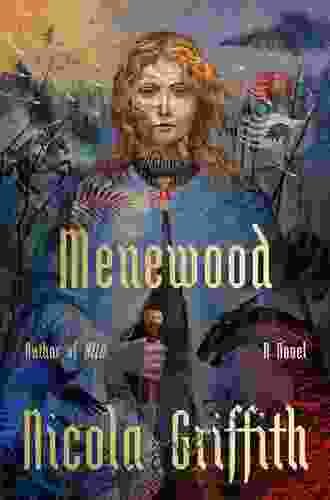
 Ken Follett
Ken FollettUnraveling the Enchanting World of Menewood: A...
Embark on an enthralling...
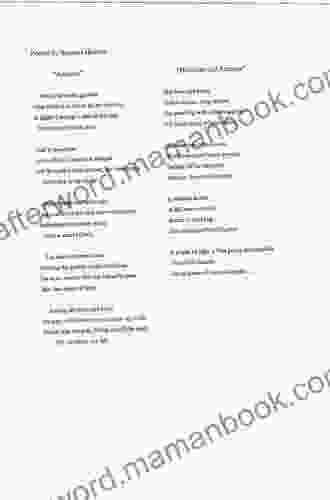
 Phil Foster
Phil FosterNorth Poems by Seamus Heaney: An Exploration of Place,...
Seamus Heaney's North...
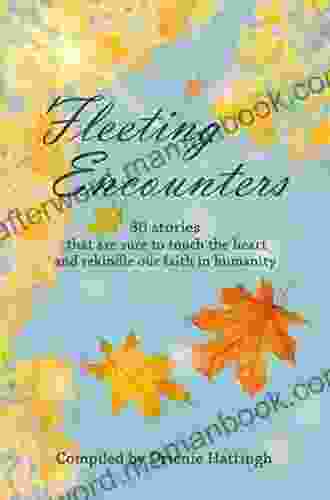
 Jack Butler
Jack ButlerFleeting Encounters: The Enigmatic Transience of Maria...
In the annals of literary history, fleeting...
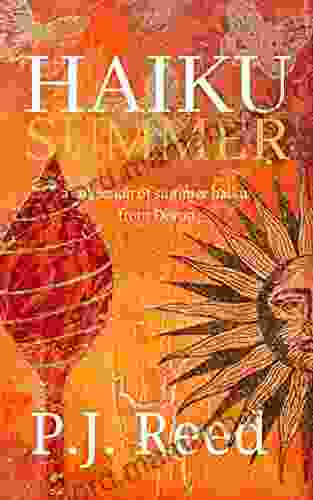
 Eliot Foster
Eliot FosterA Haiku Summer: Capturing the Essence of the Season in...
Summer is a time of warmth,...
5 out of 5
| Language | : | English |
| File size | : | 298 KB |
| Text-to-Speech | : | Enabled |
| Screen Reader | : | Supported |
| Enhanced typesetting | : | Enabled |
| Print length | : | 36 pages |
| Lending | : | Enabled |
| Paperback | : | 354 pages |
| Item Weight | : | 1.04 pounds |
| Dimensions | : | 6 x 0.8 x 9 inches |


